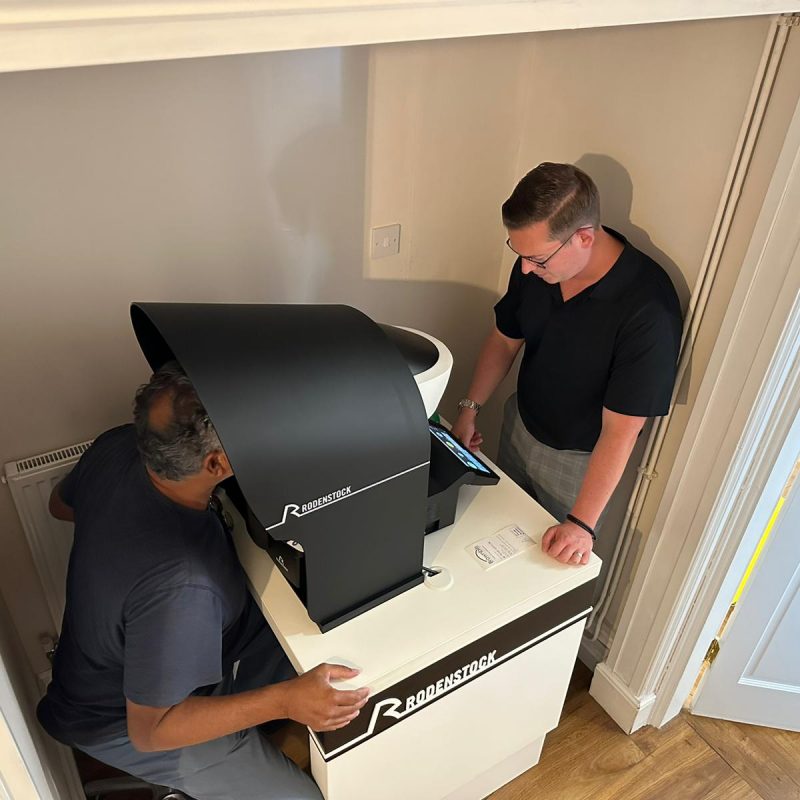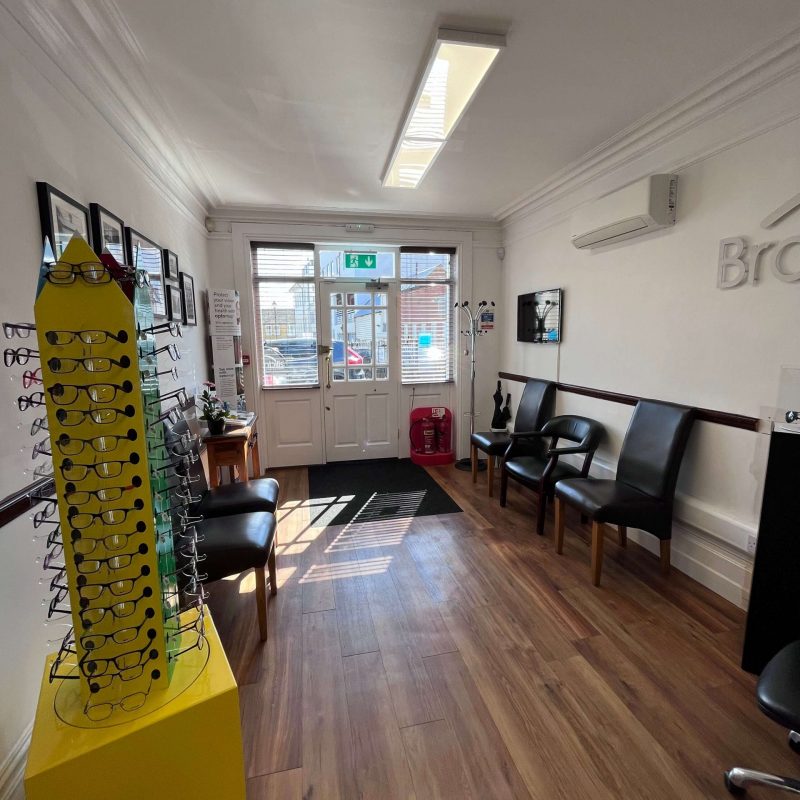
What happens when I arrive for my eye examination?
One of our practice staff will greet you upon arrival, sign you in, and check your contact details with us are all correct. Before your appointment, our team will also take you through our pre-screening process.
- All patients will have a scan on the DNEye Scanner.
- For our private and eye plan patients, you will also have a retinal scan on our Optomap. NHS patients can choose to pay extra to benefit from this scan.
The results from these scans will be sent directly to your Optometrist, who will be able to review the results with you during your appointment.
What happens during my eye examination?
Our Optometrists will begin your appointment by asking about your medical history and any current eye-related issues. They may inquire about your overall health, medications you’re taking, and any family history of eye diseases, such as glaucoma.
Following this, they will move on to testing your visual acuity. You’ll be asked to read from a standardised eye chart which helps the optometrist to determine how well you can see at both far and near viewing distances.
Our Optometrists will then determine the optimum prescription that provides your eyes with their clearest and most comfortable vision. They may use a phoropter (a device that houses multiple lenses) or a trial frame that is worn like a pair of spectacles that will have the lenses slotted in and out of it. We will also make an assessment of how well your eyes work together and look for evidence of strabismus (squint).
Examining Eye Health
Our optometrists will also examine the health of your eyes. This can involve the following:
- A slit lamp allows us to view the front structures of the eye (e.g. the cornea) as well as assessing the lens and the retina at the back of the eye.
- Sometimes we may need to dilate the pupils to further examine the retinal structures, for which we will use eye drops.
- Intraocular Pressure (IOP) may also be measured using a tonometer – and in most cases this is just using a gentle puff of air on each eye.
In some cases, we may recommend additional tests, such as visual field testing. Depending on our findings we may schedule a follow up appointment or may suggest a referral to an ophthalmologist for further evaluation and/or treatment if indicated.
At the end of your eye examination, we will discuss our findings with you. We will decide upon the best course of action, whether that be new glasses, a referral to an Ophthalmologist or monitoring a condition. We will also provide you with a copy of your prescription.

What happens after my appointment?
At the end of your appointment, you will be collected by one of our Dispensing Team from the consulting room and taken through to the dispensing area to conclude your appointment with us.
If the Optometrist has recommended spectacles, or you simply fancy a new style, it is at this point that our expert Dispensing team will guide you through the process, and help you choose the frame that is right for you. They will also discuss the various types of lenses available, and based on your individual lifestyle and the Optometrists recommendation, help you to choose the best fit.
DNEye Scanner
DNeyeScanner Individualised lenses with the revolutionary DNEye® eye measurement. At Brownbills Optometrists we’re proud to be …
Read More